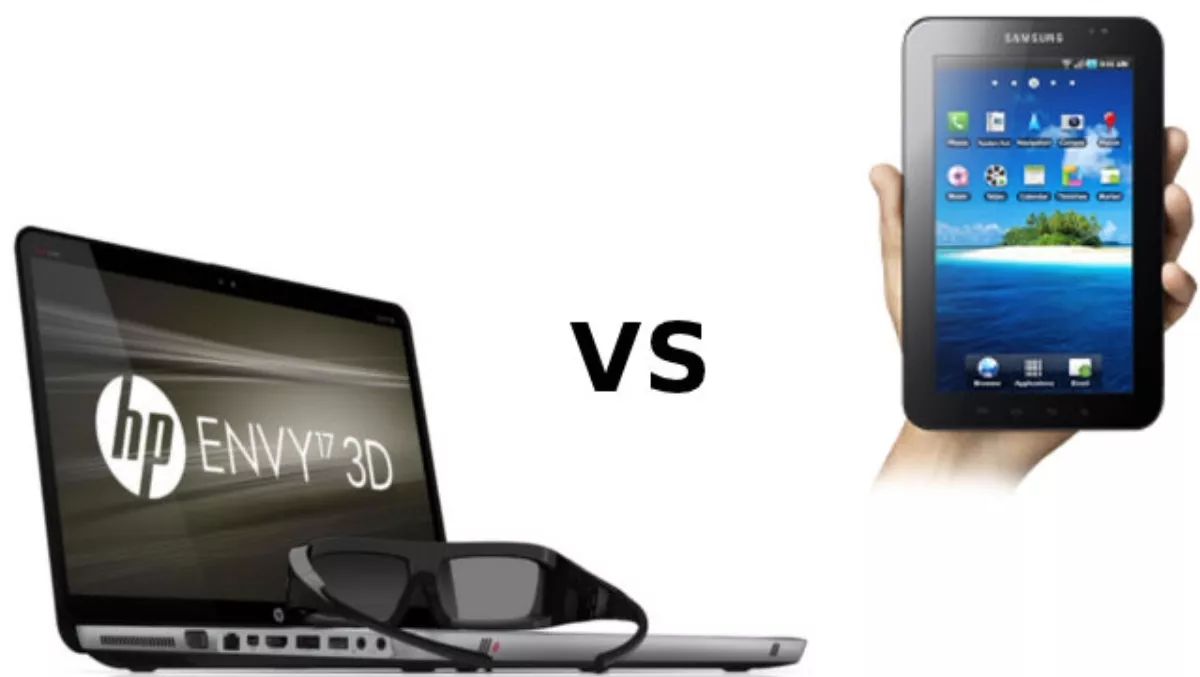
With the rise of the tablet last year, many people were wondering what would become of the trusty laptop? (See our July cover story ‘Is the laptop dead?') If you're on the market for a new personal computing device, you now not only need to consider laptop brands, styles and sizes, you also need to consider whether the laptop is even the right device for you. Here we revisit the issue looking at the pros and cons of both the laptop and its new competitor, the tablet. Currently, the tablet has some obvious drawbacks when compared to the laptop. First of all, it doesn't have a keyboard or mouse, which is a major part of how we interact with our computer. This makes things difficult for people like me – who spend a lot of time typing – as a touch screen keyboard simply doesn't cut it! It also can't hold as much data as a laptop, has a smaller screen (again, an issue for many people), is not adequate for things such as graphic design, doesn't offer any advanced audio equipment, and so on. So at this point in time, the laptop still has an edge up on its competitor. That being said, Craig Richardson, Managing Director of Jade Software, believes that it is only a matter of time before the tablet catches up. "A lot of the time, the hardware is ahead of the software, which is what we are seeing with the tablet,” he says. "I think we are waiting for the next generation of software to emerge, which will solve many of the current issues people have with tablets and allow them to become much more interactive.” There is so much effort currently going into developing software for smart devices, with better memory storage and computation as the current challenge, it is easy to imagine the next breed of tablets. It is not so easy, however, to imagine the next breed of laptops. If you are currently trying to decide between purchasing a new laptop or a tablet, you're probably safe to go either way at this stage. Richardson suggests that if you are making a decision for the next five years or so, you can sit tight with a laptop. Tablets are only going to continue improving and we will no doubt see more than a few new features and upgrades over the next couple of years. If you are the type of person who upgrades technology frequently, however, or you like to keep up with the latest technology trends, you might as well try out a tablet as your next personal computer purchase. Of course, what you buy should also depend on what you will be using it for. Tablets are great for portability – they are light, easy to transport, have an incredible battery life and don't take ages to boot up. Tablets also give you full control of the screen, features and applications. By using your finger or a stylus, you can directly touch the screen to make gaming more interactive, and the hands-on approach provides a more tactile experience than a mouse for drawing and illustrating. Most tablets also come with built-in eReaders, which is nice for us bookworms! They are, however, missing some key features (like a keyboard and mouse) and fall short in the memory and storage area. Furthermore, many people who use their laptops for work complain about screen size and they certainly don't have adequate capacity for graphic design (though most people in this industry are using Mac desktops anyway). Tablets, still being fairly new to the market, come with some hefty price tags and are also much more fragile than the standard laptop. They may have a durable body, but if the touchscreen is damaged, your device could become useless. You can buy a case to protect the screen, but these are not included with the product so must be purchased separately (and they're not cheap!)